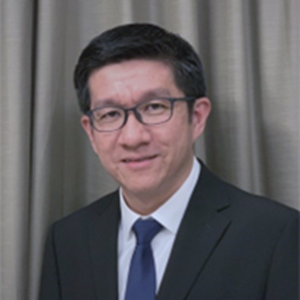Balancing the human touch with digital transformation
- Josephine Tan

Singapore’s workforce is undergoing a seismic shift, with high turnover rates and the impending mandate for flexible work arrangements compelling HR leaders to rethink their strategies. Lee Teck Seng, Managing Director for Asia-Pacific at HR Path, believes that adaptability is key.
The latest employment outlook in Singapore indicates declining hiring optimism. Citing a June 2024 ManpowerGroup poll of 525 employers across nine sectors, Lee attributed this downturn to organisations streamlining operations, offshoring to reduce costs and addressing skills shortages. As flexible work arrangements gain traction, more organisations may turn to remote employees to fill these skill gaps.
He told HRM Asia, “Amid these challenges, attracting talent with the right skills remains difficult for HR. Compensation packages and career development are no longer sufficient; workplace flexibility is now a crucial factor in attracting and retaining employees.”
This shift towards flexible work arrangements is increasingly important, particularly for a younger, more mobile, and better-educated workforce that values work-life balance, as he continued, “This trend is more prevalent in the services sector, with common practices including flexitime, part-time work, job sharing, compressed workweeks, and teleworking. Of these, part-time work and flexible work hours for office-based arrangements and teleworking for hybrid arrangements are the most common practices.”
Starting December 2024, employers in Singapore will be required to formalise processes for employees to request flexible work arrangements, as per the Ministry of Manpower’s (MOM) guidelines. For HR leaders, this mandate represents an opportunity to enhance employee retention.
Lee highlighted the importance of a strategic approach, explaining, “HR leaders can support this by developing communication strategies, emphasising trust, creating clear policy frameworks, securing management support, and starting with pilot programmes. To sustain this, organisations should build a business case with measurable benefits, engage with employees to understand their needs, measure effectiveness with clear goals and roll out pilot programmes to test feasibility.”
At HR Path, these strategies are already being implemented. “We advocate for flexible work arrangements, trust-building, and a balanced approach to in-office and remote work,” he added. Encouraging a minimum of two office days per week for team interaction helps foster trust, commitment, and motivation, ultimately enhancing both team cohesion and individual performance.
While navigating the complexities of flexible work, HR is also grappling with the rise of generative AI (GenAI). With GenAI making significant inroads into various business functions, HR departments are positioned to lead its integration in a way that fosters responsible usage and alleviates employee concerns about job displacement.

“HR can collaborate with IT departments to implement GenAI tools through a holistic approach, which includes providing GenAI upskilling training to employees, and educating them on the responsible use of GenAI tools.” – Lee Teck Seng, Managing Director for Asia-Pacific at HR Path
“HR can collaborate with IT departments to implement GenAI tools through a holistic approach, which includes providing GenAI upskilling training to employees, and educating them on the responsible use of GenAI tools. This strategy can enhance employee engagement by alleviating fears of job displacement and empowering employees with new skills for personal and professional growth,” Lee said. “Ultimately, responsible and productive use of GenAI can improve employee retention by fostering a culture of continuous learning and career development.”
In today’s labour market, where turnover is high and workforce stress is prevalent, the implementation of GenAI offers solutions that can transform HR functions. From streamlining data management to simplifying routine tasks, AI can help HR departments shift from traditional support roles to more strategic advisory positions.
READ MORE: Rethinking talent and compensation in a shifting economic landscape
He explained, “Current AI applications in HR include talent intelligence tools for crafting job descriptions, sourcing candidates, and matching roles with the right candidate characteristics. AI also assists in managing employee mobility and development, recommending new opportunities and competencies, and addressing pay equity issues.”
“AI also generates career pathways, advising on necessary skills, certifications, and mentors for career growth. In performance management, AI supports goal setting and review writing while providing integrated performance insights. For retention and engagement, AI platforms analyse data to identify issues beyond traditional surveys and benchmarks.”
However, the integration of AI is not without its challenges. HR professionals must transition from manual data analysis to leveraging AI insights, a shift that will require continuous learning and adaptation. Lee foresees a future where HR roles evolve into positions such as analysts, chatbot trainers, and system designers. “The impact of AI on HR roles will be significant, but by fostering a culture of continuous learning and career development, HR can ensure that employees are not only engaged but also empowered,” he concluded.
For more news and analysis on the latest HR and workforce trends in Asia, subscribe to HRM Asia and be part of the region’s largest HR community!






